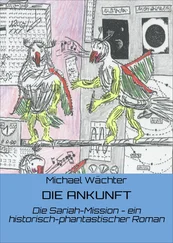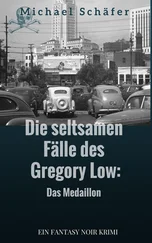He thought he’d washed it all off in the lake. “From before,” he said. He captured a handful of oats and scrubbed his face with them, unwilling to waste any water for this purpose.
“Well, I’ve heard you with these complex words in your sleep. No doubt you read: Bill Shakespeare?” asked Vadim, sitting.
“Who?”
“I studied Englishman’s literature in Odessa. I like him most so I call him Bill. We are familiar this way. Titus Adronic was a man who saw many bloodsheds. He was drenched in this. For his whole play, he’s bloody. It is very hard for him. His family. He kills them. Some of them. No one likes this play, this Adronicus. But I do. This is Ukrainian play. So! I call you: Titus”—he said, rhyming the word with “noose”—“because you remind me of this blood man.”
“Okay,” said Titus, after surfacing from a long pull of water. “Call me whatever the hell you want.” Anything that would toss an extra shovelful over the grave of everything he’d left behind was fine with him.
“Oh, it is too bad you cannot see the world with me, Titus. So much ports! Shanghai the girls are burning hot but expensive. Bangkok the girls are burning hot but cheap. The problem with cheap is dick remembers how much pockets pay! Do you understand this?” He laughed until it degraded into a cough.
“So, Titus,” he said, wiping his pink eyes, “if you were no grain trimmer, who then?”
“I worked. Inside the elevator,” Titus said, holding a small sip in his mouth to soak it. “Pool Six. Unloading grain cars. At night.”
“Ah,” he said. “Dangerous work this.”
“What isn’t.”
“Yes, yes. This is a yes thing. Well, we are moored here tonight. Then tomorrow we go through locks. Tonight you would like drink that is not water? This is dry boat but there is much grain alcohol. If you have money. Maybe you want girl down there in your bed of roses, Titus?”
“I’m busted,” he said, though he had a thousand dollars of the Native crew’s pay in his wallet. “But maybe you can get me a bigger container of water?” He’d had his heart set on drowning, not expiring of thirst, and jumping while still in a harbor would guarantee he’d be found. He would spare her that sight too.
“Ah! Now you’re caring about your well-being self!” Vadim declared drunkenly. Then he seemed to fatigue and rubbed the back of his neck with his palm. “But I’m sorry, Titus, I cannot. This jar is already so much. There would be people noticing. There is not much vessels to go around on this ship. It is best way.”
“Why are you doing this?” Titus said, trying to keep the hatch open a little longer, if only for the starlight.
“What?” said Vadim, momentarily affronted.
“Helping me.”
“Oh! Well, Titus my friend, there is a beautiful, beautiful Ukrainian proverb: ‘He is guilty who is not at home.’ ”
“That makes two of us.”
“Yes! This makes all sailors guilty. Which is true. And maybe everyone is guilty who lives with their matinka no longer,” Vadim said mirthfully.
“Suppose so,” said Titus, half-smiling, the other half of him dedicated to preventing a treacherous idea like home from finding purchase in his heart.
“Oh, who is this Diane?” Vadim said as an afterthought when he was about to shut the hatch, and Titus’s breath stopped, as it does whenever another man reads your mind.
“You cried name Diane in your sleep,” said Vadim. “Is it goddess? Girlfriend? Dream?”
“Yes,” said Titus, fighting to blockade her from his mind, “a dream.”
After another formless interval of sleep Titus became aware of the ship’s brush against steel, scraping its way into the locks. This continued until a rumbling began, and he knew the boat was being lowered. Titus tried to feel the descent but could not. He’d heard crews discuss these locks, a freshwater staircase that carried ships from the Great Lakes down to the Saint Lawrence as gently as a child putting a boat in a slip of rainwater.
The hold grew stale and drowsy. His thoughts mixed and wandered. After years in the elevator, he knew grain released gases, carbon dioxide, mostly, but also others over time, and he worried the oats were deranging him in some manner. He closed his eyes and looked again upon the Indian crew in their ragtag clothes, overalls and perma-pressed shirts worn alongside garments of fur and hide, most of them in steel toes — or soled boots for that matter — for the very first time in their lives. They walked tentatively, as though the cement was soggy spring ice on the lake. They’d brought them down from a remote reserve, Ojibwes — or Ahnisnabae was their word for themselves. Many couldn’t manage a proper English hello. The elevator’s regular crews had long refused to work nights, so no trouble there, but what irked the men most was how the Indians had brought their families along, how their women were camped in a lot near the railroad tracks in the harbor, babies strapped to them in beaded carriers, sage and sweet grass burning most of the time, laundry all hung up like flags of an invading army — a disgrace, some called it. In their eyes, some crucial separation was not being observed, and they revved their trucks near the camp during the day to disturb the night crew’s sleep. When one got his hand sliced by a shovel, an elder came and sewed him up with some animal gut. Titus and his best friend were relieved not to require a doctor. But overall the Indians were cautious, methodical workers, unlike the daytime regulars, drinking and fighting and carrying on. Altogether the Indian crew managed ten cars a night. Every night. “Those ones are industrious,” a grain inspector named Butler had remarked at shift change, “despite their lazy heritage.” Titus wasn’t proud of paying them so little, but they were poor, desperate for work, and his partner had convinced him they were doing them a favor.
Traversing the locks seemed to take a day, though of course he couldn’t be certain, and Vadim didn’t appear. Titus rationed the water, allowing himself a teaspoon from the jar for every five hundred breaths he took, and before long his water was down to the amount of beer a man would abandon in his glass without thinking a thing of it.
Luckily, before the nightmares returned, the hatch popped. Night again, starless this time, and the lights on the deck cut sharp angles into the hold. Vadim was sober and seemed hurried, gruffer, as though embarrassed by the camaraderie they’d shared last time. “I’ve come to tell you we pass Montreal in two days,” he said whispering quickly. “You can get off there. This is the last port call before ocean. Okay?”
Titus said okay. Somewhere in the dark hours alone, he’d lost his conviction to drown. But Montreal seemed as good a place as any to die.
“We are not docking in Montreal, but I know a tugboat man who hauls there. He brings supplies. Booze and other things. He will return you into the harbor.”
Titus thanked him. Vadim looked like he was preparing to go. “Any chance of some more water?” Titus said. “Or even something to eat? These oats are twisting me up.”
Vadim sighed. He put his hands over his face. “You know it is not easy for me to get this water,” he said sharply. “It does not look good carrying jars about. It looks like I am loafing. Or with moonshines.”
Titus told him he could tie it to a string and dip it in the lake. “I’m not picky,” he said.
“This is not the point,” said Vadim wearily, shaking his head. The wheedle of gulls could be heard in the air above the hatch, and for a moment Titus thought he would like to climb out, throttle this silly man, then go swimming.
“Okay,” Vadim said after some consideration, “toss up this jar.”
Читать дальше












